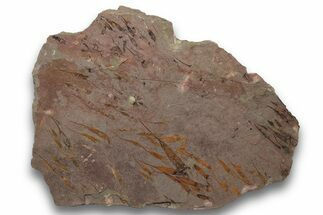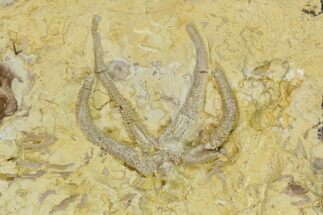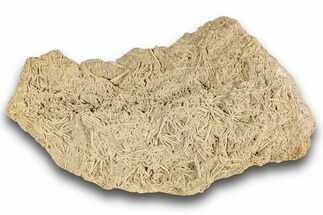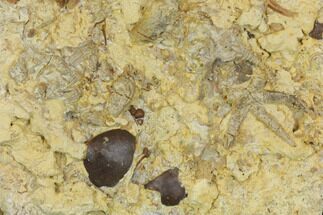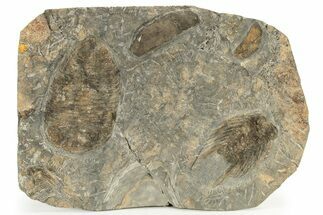This Specimen has been sold.
3.5" Long Eocrinoid (Ascocystites) Fossil - Ordovician
This is a 3.5" long eocrinoid (Ascocystites) fossil from the Kataoua Formation in Morocco. The orange coloration is due to the oxidization of iron pyrite.
It comes with an acrylic display stand.
It comes with an acrylic display stand.
Eocrinoids were one of the earliest groups of echinoderms and are believed to be closely related to many other groups including crinoids, cystoids, and blastoids. They first appeared in the Early Cambrian and survived until the Late Silurian, about 419 million years ago. Despite their name "dawn crinoids", they may not be directly ancestral to true crinoids, but crinoids instead evolved from the ancestors of eocrinoids.
Eocrinoids had a vase-shaped body (calyx) covered by crystalline calcite plates. These plates were symmetrical and bore ridges that met up with the ridges of other plates, creating a geometrical pattern. They had a stalk that attached them to the bottom of the ocean via a holdfast, and were benthic suspension feeders using their arms to move particles of food towards a mouth.
Eocrinoids had a vase-shaped body (calyx) covered by crystalline calcite plates. These plates were symmetrical and bore ridges that met up with the ridges of other plates, creating a geometrical pattern. They had a stalk that attached them to the bottom of the ocean via a holdfast, and were benthic suspension feeders using their arms to move particles of food towards a mouth.
SPECIES
Ascocystites sp.
AGE
LOCATION
El Kaid Rami, Morocco
FORMATION
Kataoua Formation
SIZE
Largest Fossil 3.5", Rock 4.6 x 3.3"
CATEGORY
SUB CATEGORY
ITEM
#115893
We guarantee the authenticity of all of our specimens.
 Reviews
Reviews



